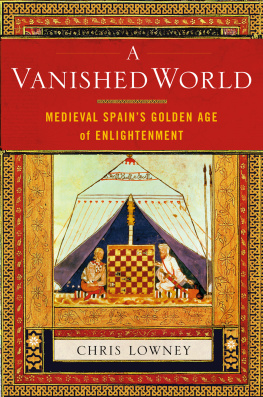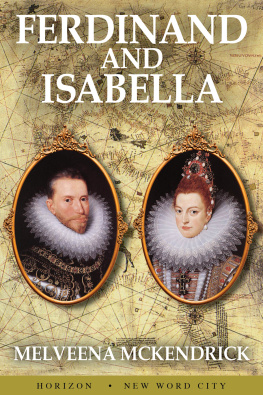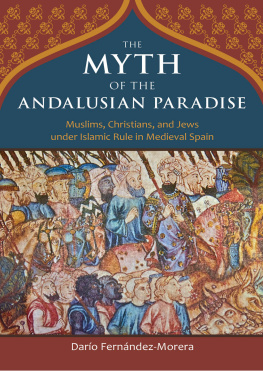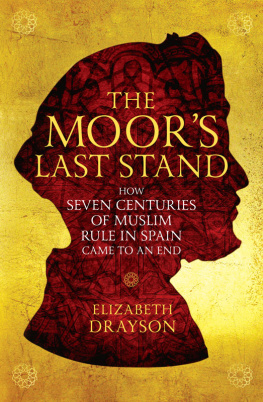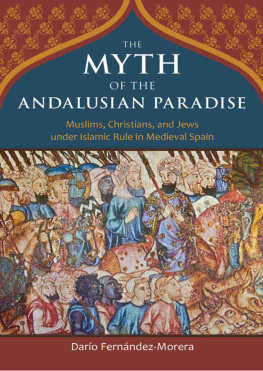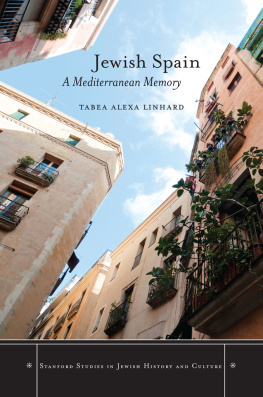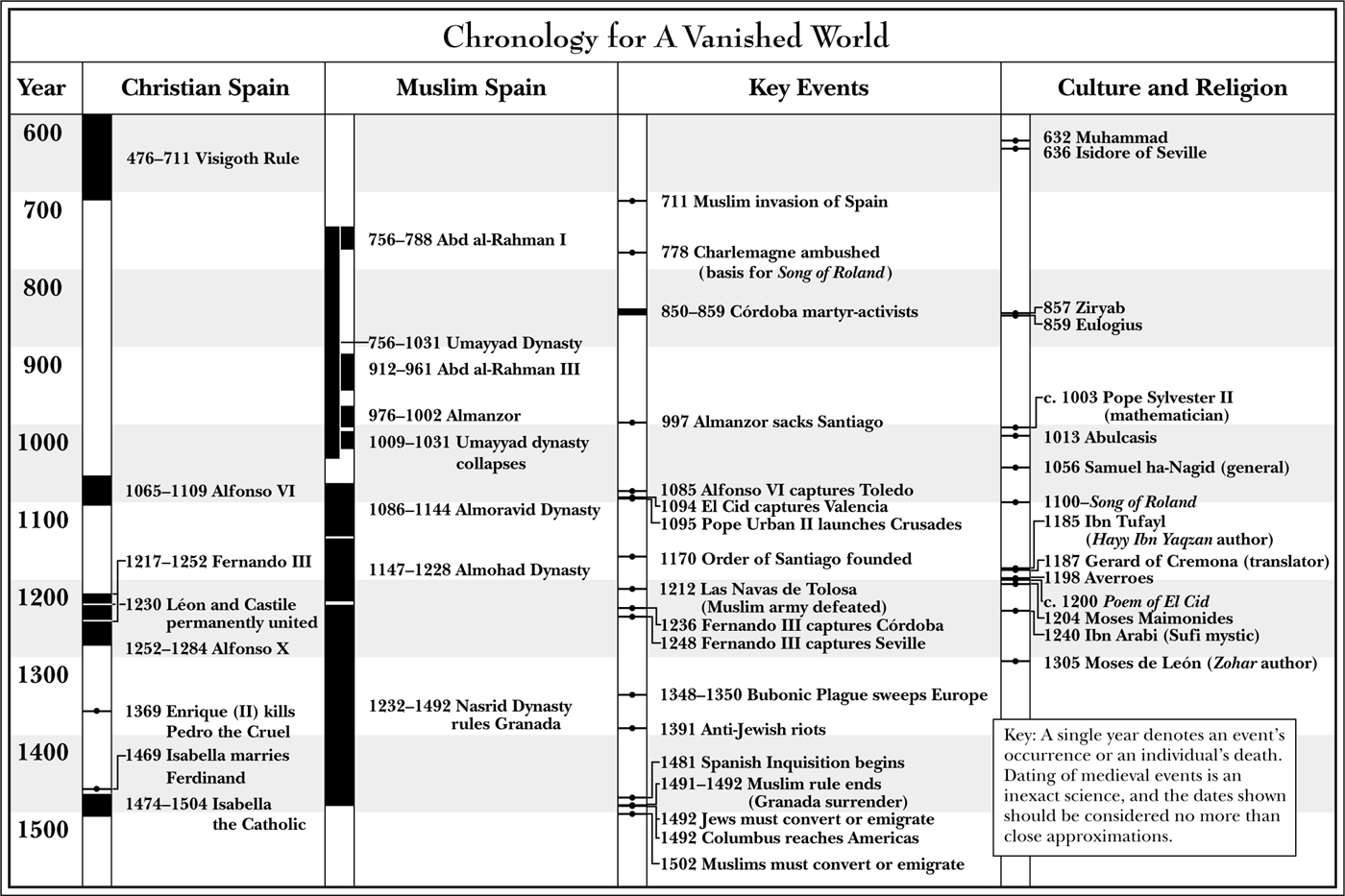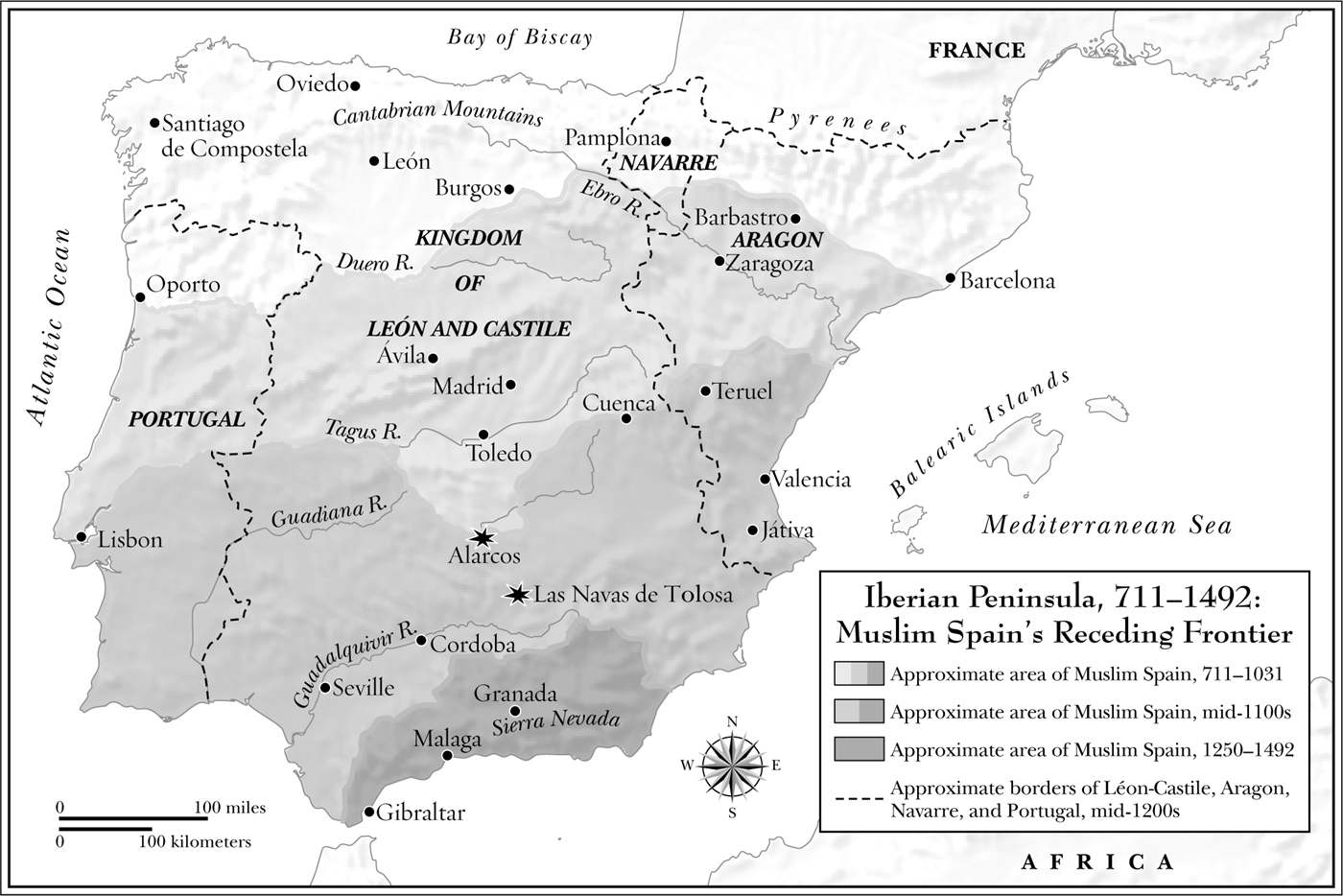Christopher Lowney - A Vanished World: Medieval Spains Golden Age of Enlightenment
Here you can read online Christopher Lowney - A Vanished World: Medieval Spains Golden Age of Enlightenment full text of the book (entire story) in english for free. Download pdf and epub, get meaning, cover and reviews about this ebook. year: 2012, publisher: Free Press, genre: Religion. Description of the work, (preface) as well as reviews are available. Best literature library LitArk.com created for fans of good reading and offers a wide selection of genres:
Romance novel
Science fiction
Adventure
Detective
Science
History
Home and family
Prose
Art
Politics
Computer
Non-fiction
Religion
Business
Children
Humor
Choose a favorite category and find really read worthwhile books. Enjoy immersion in the world of imagination, feel the emotions of the characters or learn something new for yourself, make an fascinating discovery.
- Book:A Vanished World: Medieval Spains Golden Age of Enlightenment
- Author:
- Publisher:Free Press
- Genre:
- Year:2012
- Rating:3 / 5
- Favourites:Add to favourites
- Your mark:
A Vanished World: Medieval Spains Golden Age of Enlightenment: summary, description and annotation
We offer to read an annotation, description, summary or preface (depends on what the author of the book "A Vanished World: Medieval Spains Golden Age of Enlightenment" wrote himself). If you haven't found the necessary information about the book — write in the comments, we will try to find it.
In a world troubled by religious strife and division, Chris Lowneys vividly written book offers a hopeful historical reminder: Muslims, Christians, and Jews once lived together in Spain, creating a centuries-long flowering of commerce, culture, art, and architecture.
In 711, a ragtag army of Muslim North Africans conquered Christian Spain and launched Western Europes first Islamic state. In 1492, Ferdinand and Isabella vanquished Spains last Muslim kingdom, forced Jews to convert or emigrate, and dispatched Christopher Columbus to the New World. In the years between, Spains Muslims, Christians, and Jews forged a golden age for each faith and distanced Spain from a Europe mired in the Dark Ages.
Medieval Spains pioneering innovations touched every dimension of Western life: Spaniards introduced Europeans to paper manufacture and to the Hindu-Arabic numerals that supplanted the Roman numeral system. Spains farmers adopted irrigation technology from the Near East to nurture Europes first crops of citrus and cotton. Spains religious scholars authored works that still profoundly influence their respective faiths, from the masterpiece of the Jewish kabbalah to the meditations of Sufisms greatest master to the eloquent arguments of Maimonides that humans can successfully marry religious faith and reasoned philosophical inquiry. No less astonishing than medieval Spains wide-ranging accomplishments was the simple fact its Muslims, Christians, and Jews often managed to live and work side by side, bestowing tolerance and freedom of worship on the religious minorities in their midst.
A Vanished World chronicles this impossibly panoramic sweep of human history and achievement, encompassing both the agony of jihad, Crusades, and Inquisition, and the glory of a multicultural civilization that forever changed the West. One gnarled root of todays religious animosities stretches back to medieval Spain, but so does a more nourishing root of much modern religious wisdom.
Christopher Lowney: author's other books
Who wrote A Vanished World: Medieval Spains Golden Age of Enlightenment? Find out the surname, the name of the author of the book and a list of all author's works by series.

